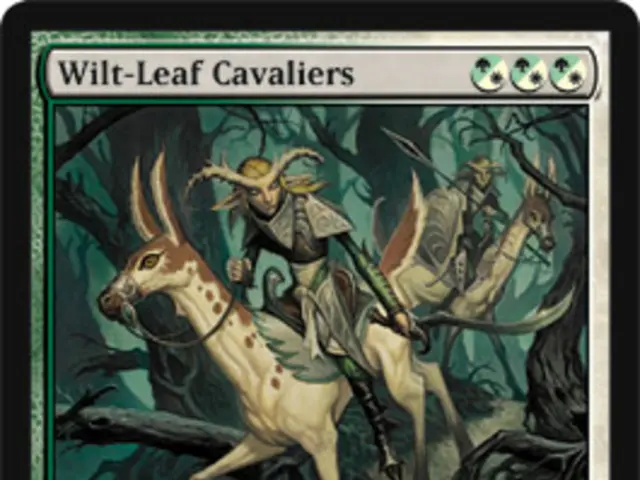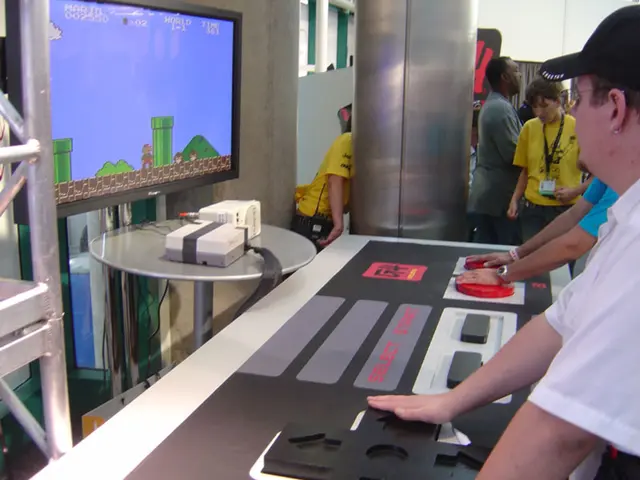Artists in Syria faced with a tense balance: Aware of potential censorship under the new government, Syrian artists tread cautiously to avoid chaos.
Rebel Medley: Syrian Artists Navigating a New Era of Censorship
In the lush, secluded village of Kasheesh, nestled amidst northwest Syria's forested mountains, the cast and crew of the groundbreaking series "The Hero" (Al-Batal) were about to wrap up their shoot. Yet, beneath the jubilation, a hint of anxiety hovered—an apprehension bred by months of turmoil engulfing Syria.
Kasheesh, once a serene sanctuary, had become a silent observer to the chaos unfolding just a stone's throw away. The smooth collapse of Bashar Assad's regime had given way to a new Islamist-led government, leaving artists bewildered, unsure of the future.
"Life under this new regime is unpredictable," lamented one actor, his eyes reflecting the uncertainty that had gripped numerous Syrian artists.
Before, the actors had battled with the regime's censorship—obtaining approvals for scripts to ensure they didn't criticize the government or its forces. Now, they trembled at the prospect of a new, possibly more restrictive era, where censorship may be driven by ideological or political orthodoxy.
An accomplished Syrian actress, Nour Al-Ali, shared her concerns: "Now I'm afraid we'll face censorship in a different way."
Syria, once a powerhouse of serialized television, found its industry ravaged by the 14-year civil war. Yet, under Assad's reign, many of these shows became potent propaganda tools, promoting loyalty to the ruler and demonizing his adversaries.
For Al-Batal, navigating the red lines was a deft ballet choreographed by its director, Al-Layth Hajjo. The story revolved around two intriguing characters—a school principal and a thug—and their contrasting responses to war. Hajjo reveled in subtly slipping messages past the censors, knowing their fixation on trivial details would allow him to highlight crucial issues.
However, Hajjo's ceaseless clashes with the censors took a surprising twist with the fall of Assad. Instead of facing harsher scrutiny under the new regime, his series was suspended in a way he had not imagined— Access to Damascus was cut off due to advancing rebel forces, forcing him to flee the capital with the cast and crew.
Months later, with the fear of returning subsiding, Hajjo approached the fledgling Islamist-led government to resume filming. To his surprise, they couldn't understand why he desired their aid. "They asked, 'So? Go film. What does it have to do with us? Why do you need us?'" Hajjo recalled.
Eventually, Hajjo convinced officials to grant him the necessary permits. The renewed momentum was, however, short-lived, as Syria became embroiled in a series of sectarian massacres that left many questioning the future of the country.
Artists, once hopeful, now hovered between despair and defiance. The new government's Cabinet, dominated by Islamists, raised concerns about their repressive tendencies, particularly on artistic expression. Critics pointed fingers at the culture minister for his dismissive views on non-Arab Syrian minorities and their languages.
Meanwhile, the Syrian Higher Institute for Dramatic Arts, feared for its funding but received encouraging signals from the government. Elsewhere, banned books and censored films slowly returned to the market, offering a glimmer of hope for the beleaguered artistic community.
However, Hajjo harbored reservations, feeling that the Islamists would eventually grow impatient with the artists, whom they see as a means to convey their ideology positively to the masses.
Time would reveal if the artists' fears were grounded or just another echo of uncertainty reverberating through Syria.
Stirring Shadows: The Amalgamation of Art and Unrest in Syria
For centuries, art and unrest have danced an intricate waltz in Syria, each influencing the other in profound ways. Before the rise of Islamist rule, theater productions often tackled taboo subjects like state violence, performed clandestinely to bypass Assad-era restrictions.
Post-Assad, rumors of new censorship laws circulated the artistic community, stifling freedom of expression and punctuating the constant throb of fear. Some performers, unwilling to toe the Islamic orthodoxy line, chose exile over staying and fighting for their creative pursuits.
The television industry, once a beacon of pan-Arab influence, now trembled on the precipice of extinction. With radical Islamists taking the reins, producers worried that their narratives might clash with conservative religious values or political agendas.
Syria's artists walked a tightrope, teetering between the thrill of unprecedented liberty and the specter of censorship lurking in the shadows. The art world remained a microcosm of the larger Syrian society, grappling with unforeseen challenges with an unyielding spirit.
The Sustained Symphony of Oppression
As the curtain falls on Syria's unsteady dance with censorship, one cannot help but nod toward regional counterparts—Turkey, for instance, where Kurdish artists languish in prison, silenced by laws criminalizing Kurdish lyrics. PEN America's global report has alarmed artists across the board, underscoring the dangerous rise in jailed writers, artists, and musicians.
Syria's artists now found themselves mired in familiar worries, harking back to the era of Assad's iron fist. It remained crucial for them to stand resilient, holding on to the belief that their power lay in their ability to tell stories that resonated with people, transcending the shackles of oppression.
- In the new Islamist-led government of Syria, artists like Hajjo are unsure of the future, as they anticipate potentially more restrictive censorship.
- The collapse of Bashar Assad's regime has left many Syrian artists bewildered and anxious about the new era of censorship.
- Prior to the regime's collapse, artists faced censorship to ensure their scripts didn't criticize the government or its forces, creating a delicate dance to navigate the red lines.
- Al-Batal, a groundbreaking series in Syria, relies on subtlety to bypass censors, addressing crucial issues while avoiding political scrutiny.
- After fleeing Damascus due to advancing rebel forces, Hajjo approached the new government to resume filming, only to find that they did not understand why he needed their assistance.
- Leaving many artists questioning the future of their creative pursuits, the new government's Cabinet, dominated by Islamists, concerns critics for their repressive tendencies, particularly on artistic expression.
- With the constant threat of sectarian massacres looming over Syria, artists find themselves grappling with despair and defiance, as they struggle to create against the backdrop of unrest.
- The story of Syria's artists is a reflection of the larger Syrian society, demonstrating an unyielding spirit in the face of adversity, as they continue to create and challenge the oppressive forces that seek to silence them.






